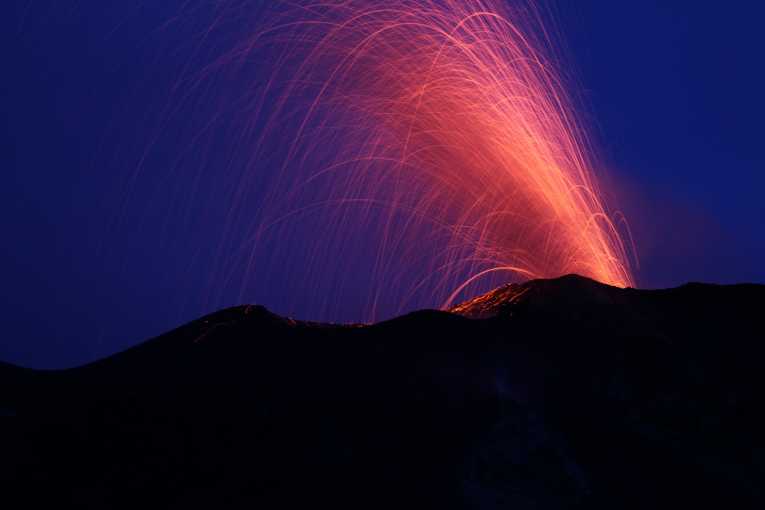Eager to find ways to move on from the financial black-hole left in Iceland's economy, by the credit crisis - and perhaps also to make up for the closing European airspace for 8 days in April - the country's geothermal power experts are looking at a project to hook Europe up to the awesome power of her volcanoes.
According to Monday's report from Bloomberg, the project would involve laying a sub-sea cable 700 miles, from Iceland to Scotland, in the UK, in order to provide geothermal power to Europe's grid system. The cost could be over $2 billion, but the reward would be 5 terawatt-hours of supply annually - which could net Iceland revenue amounting to 10% of its $12 billion economy. That supply would also go a long way to meeting the Europe's renewable energy target of 20% by 2020.
Iceland is in fact an explosively active volcanic hot-spot, sitting atop the mid-Atlantic Ridge – an underwater volcanic fissure that has riven the Atlantic sea-floor. The disruptive power of Iceland's volcanoes was demonstrated to full effect this spring, when the tongue-twisting volcano, Eyjafjallajà ¶kull, spewed an ash cloud across Europe – halting its air traffic for days.
But Iceland has long harnessed that power to supply its own energy needs, with nearly a third of its electricity generated from geothermal power plants. Additionally, almost 9 out of 10 homes have their heating and hot water needs met by super-heated water directly tapped from those hot springs.
And there is more clean energy to be extracted from Iceland. When hydro-power is taken into account, Iceland's government reckons that some 75% of the country's energy potential is still to be exploited. That's why there is now a big drive to attract capital to fund such mammoth projects, to turn that potential into clean energy for Europe.
But more than that, President Olafur Ragnar Grimsson believes Iceland can be a geothermal beacon, helping the world to make best use of it's volcanic hot-spots. He thinks that Iceland's experience shows that moving rapidly from a fossil-fuel past, to clean energy future, is perfectly plausible for the global economy – and Iceland is already there.
If he's right, and the money flows in to realize Iceland's dreams, it may be that Eyjafjallajà ¶kull and her cohorts will do more to stop emissions for the globe, than just temporarily stopping air travel.










